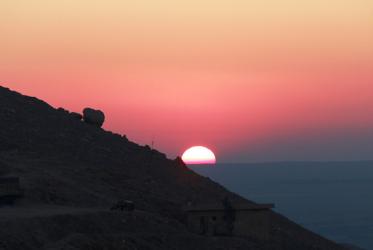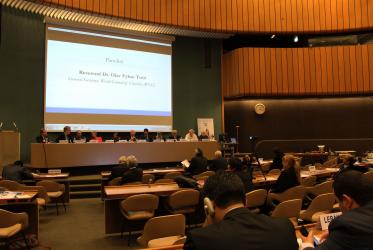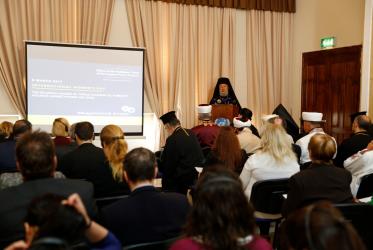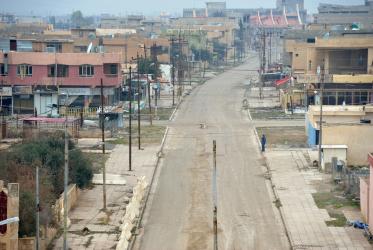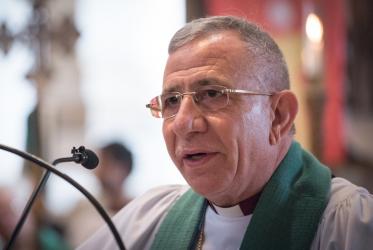Displaying 421 - 440 of 668
07 April 2017
WCC urges end to “culture of impunity” in Syria
06 April 2017
Holy work for the Holy Land
29 March 2017
Palestinian tapestry installed at the WCC
29 March 2017
Islam and Christianity: finding the common ground
16 March 2017
In Lebanon, refugees face hardship - but find hope
16 March 2017
USA pastors reflect on Holy Land pilgrimage
14 March 2017
WCC gravely concerned over Israel’s travel ban
09 March 2017
Praying for one another, even when we disagree
02 March 2017
Bishop Younan awarded Niwano Peace Prize
22 February 2017
Children from Bethlehem in key role, as WCC shares Christmas message
22 December 2016
The child in the manger and the war in Syria
22 December 2016
Strong bridges needed more than ever
21 December 2016
“Walking Together” project explores pilgrimage traditions
19 December 2016
“There are no strangers here” – Saint Irenaeus a key to unity?
19 December 2016
